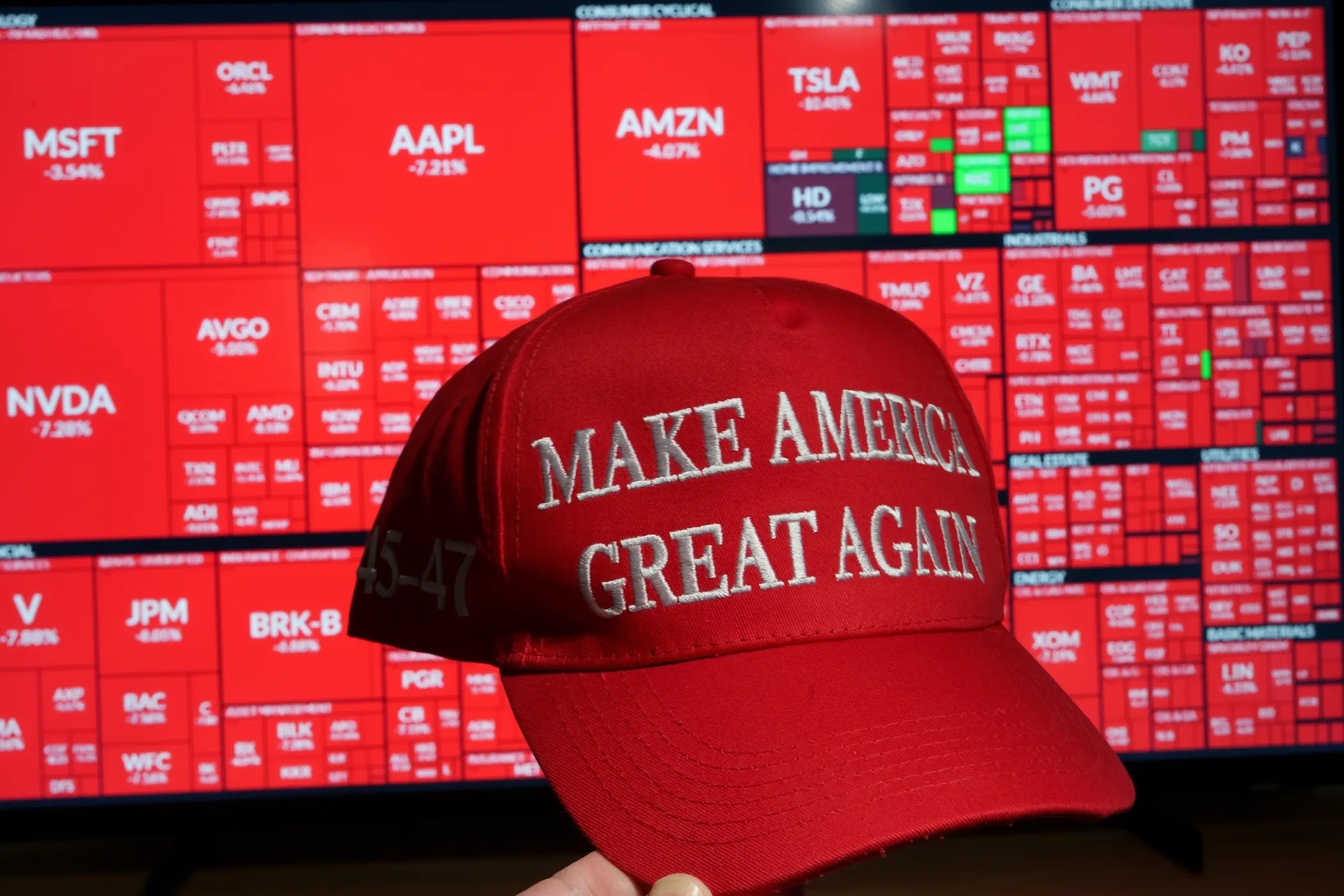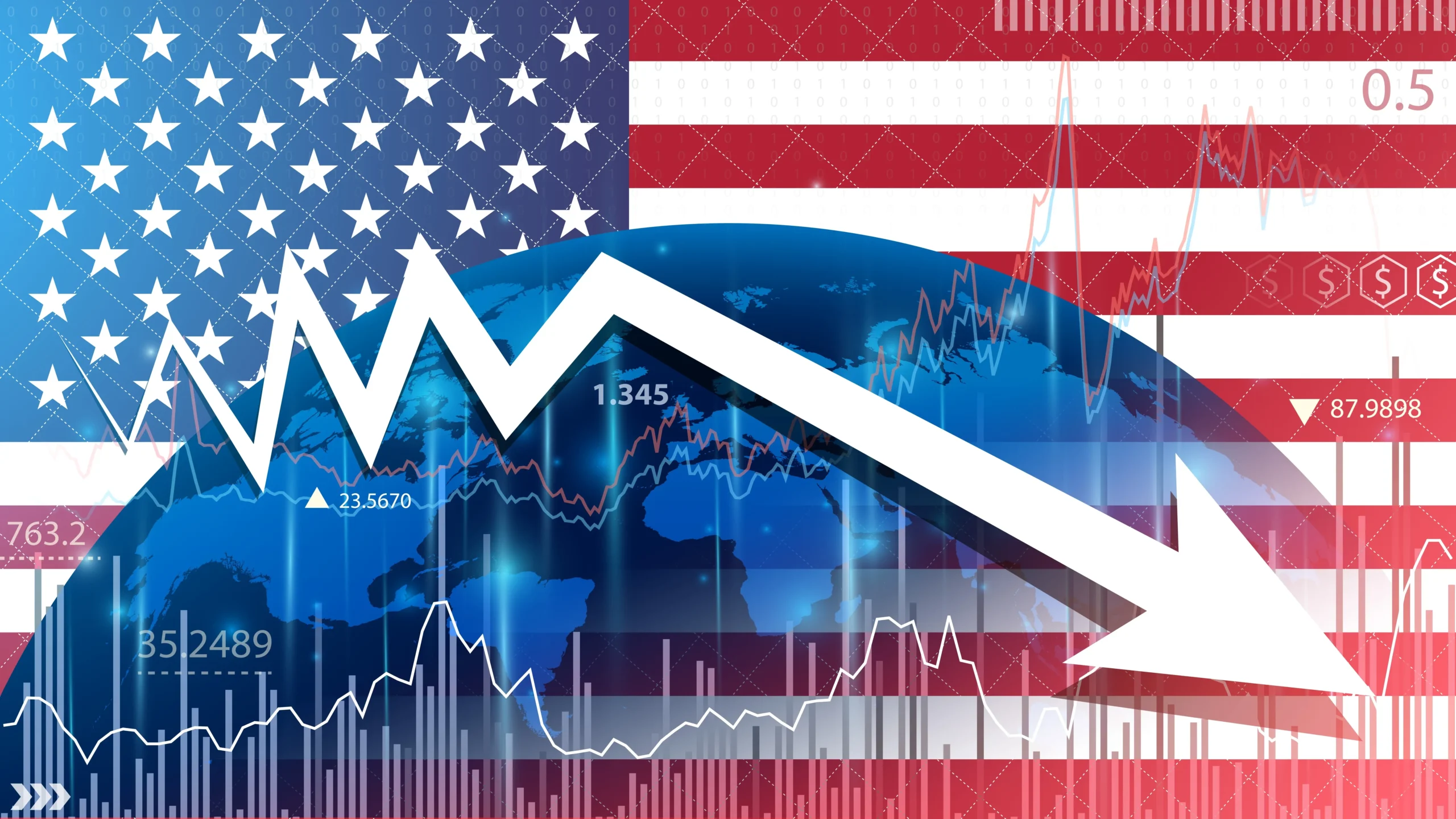7 Nov 2025
The 2025 American Economy: Navigating the Policy Crosscurrents of Tariffs and Tax Cuts
This analysis provides a comprehensive analysis of the United States economy as of November 2025, addressing the query of whether its current status is one of a "boom" or a "downslide." The principal finding is that the economy is exhibiting clear signs of downsliding in the immediate term. This assessment is substantiated by a pronounced deceleration in the labor market and a pre-emptive, counter-inflationary interest rate cut by the Federal Reserve, which has explicitly prioritized mounting employment risks over persistent inflation.
The 2025 economy is uniquely defined by the simultaneous implementation of two contradictory, multi-trillion-dollar policies. This has created a state of extreme tension and volatility:
A Contractionary Trade Shock: A new, aggressive tariff regime has been implemented, acting as a significant, broad-based tax on imported goods. This policy is demonstrably raising prices, eroding household purchasing power, and creating a drag on economic activity.
An Expansionary Fiscal Stimulus: The "One Big Beautiful Bill Act" (OBBBA) was passed, enacting a massive, deficit-financed stimulus by extending the 2017 tax cuts. This policy is designed to boost demand and investment.
The current "downsliding" dynamic is a direct result of the tariff shock's immediate contractionary impact, which has, for now, overpowered the stimulus. The Federal Reserve's October 2025 decision to cut interest rates confirms its judgment that "downside risks to employment" constitute the most immediate threat.
This analysisU.S. forecasts a volatile and unstable path. The 2025 slowdown is expected to give way to a temporary, stimulus-fueled "sugar high" in 2026, as the OBBBA tax cuts take full effect and boost demand. This artificial boom is projected to fade quickly by 2027-2028, revealing an economy structurally strained by a gross national debt exceeding $38 trillion, a persistent $1.8 trillion annual deficit, and a deteriorating net international investment position of -$26.14 trillion. The new policy mix has locked in this structural weakness.
28 May 2025
What If: The US Economy Collapses?
Global trade tensions, supply chain disruptions, and skyrocketing costs are some of the unprecedented effects caused by U.S. president Donald Trump’s second term aggressive tariff policies. Tariff policies' impact goes beyond being just hypothetical, with real-time predictions and forecasts that more severe effects could follow; the global GDP is expected to slowly grow by only 2.2% in 2025, while the United Nations Conference on Trade and Development (UNCTAD) has warned of a possible global recession, given that growth slips below 2.5%. Not only the UNCTAD but also the International Monetary Fund (IMF) has downgraded its outlook for the global economy to 2.8% in 2025 and made a significant revision for the U.S. economy lowering its 2025 growth projection to 1.8% in April from 2.7% in January. Adding to these concerns, the World Trade Organization has already highlighted a sharp deterioration in global trade prospects, with world merchandise trade now expected to decline by 0.2% in 2025, nearly three percentage points lower than previous forecasts.
The current instabilities go beyond the economic aspect; they also affect the U.S.’s international alliances and add additional burdens to households, many of whom are delaying major life decisions. A pressing question amid recession fears arises: What are the impacts on a global scale in the event of a U.S. economic collapse? Given the leading position the U.S. plays as the world’s largest economy and the leading issuer of primary reserve currency, such a downturn would trigger a financial disaster of unparalleled magnitude. Essentially, if the U.S.’s economy falls, the world’s economy falls with it. Imagine waking up a few years from now, pulling out your phone, and seeing the headline: "U.S. Economy in Freefall: Markets Collapsed Overnight." It begins as a distant rumble, as if a story is taking place somewhere else. But then you go to get your morning coffee, and the price has tripled. Your investment app reveals that your life savings have been devastated. Overseas, factories that rely on American consumers come to a standstill, leaving entire villages jobless. The USD, once the cornerstone of global banking, has collapsed, provoking wild currency wars as governments try to preserve their own. Suddenly, that far-off catastrophe isn't so far away; it's emptying your wallet, increasing your grocery cost, and endangering your basic existence. This isn't just a headline; it's a chilling, global economic winter, its icy grip felt in every home, on every continent, for generations. Are we truly prepared for such a cataclysm?

